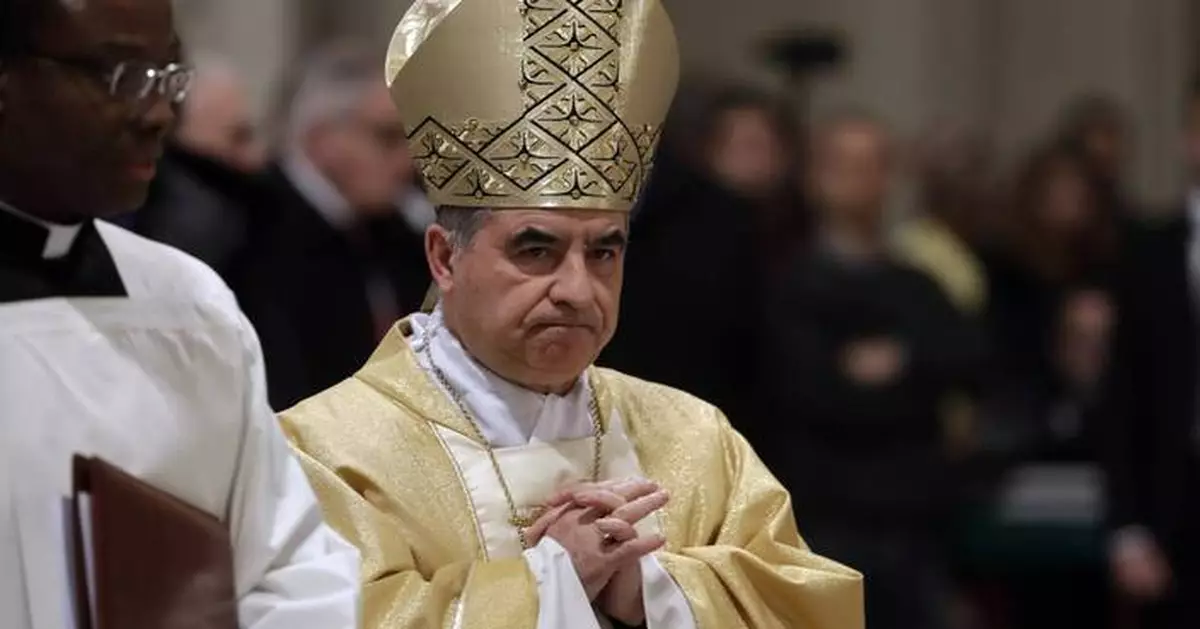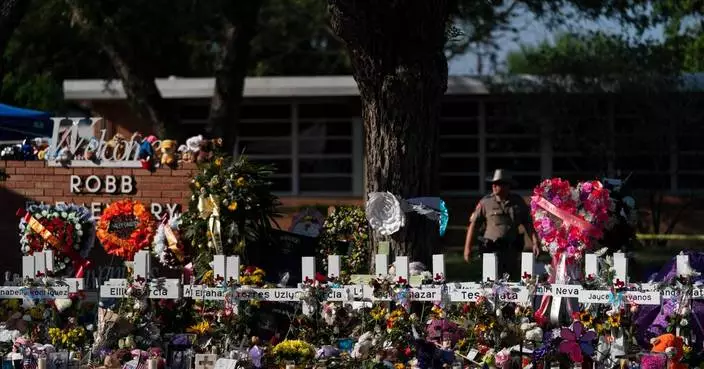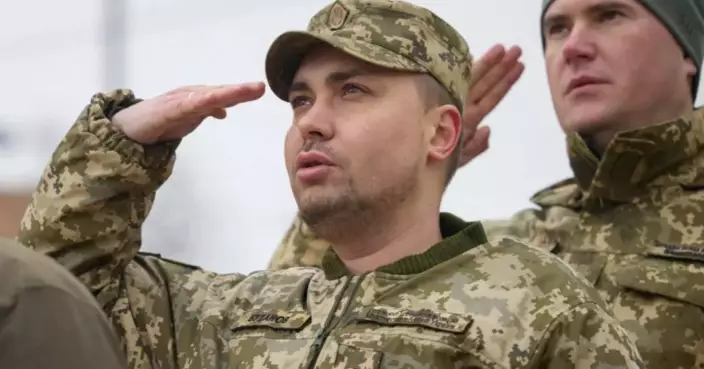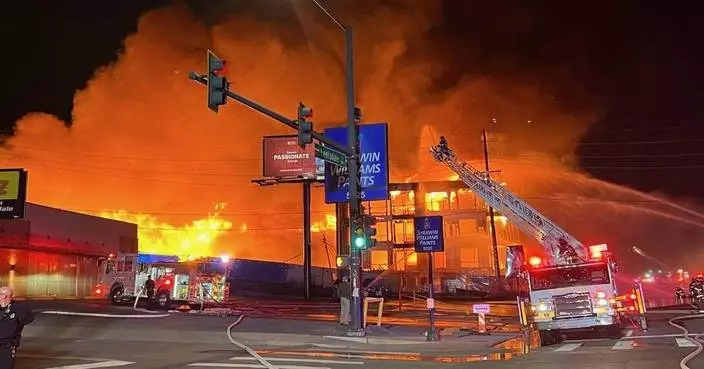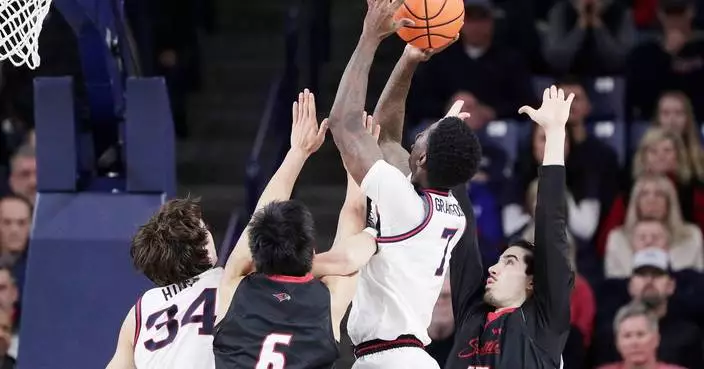VATICAN CITY (AP) — The Italian cardinal at the heart of the Vatican’s “trial of the century” announced Tuesday he was withdrawing from participating in the upcoming conclave to elect a new pope for “the good of the church,” ending days of drama that had overshadowed the proceedings.
Cardinal Angelo Becciu’ s status has dominated discussions in the days after Pope Francis’ death amid questions about whether he would participate in the conclave to elect Francis' successor or not.
After his 2020 downfall, Becciu had said he would not participate in any future conclave. But in recent days he had asserted he had a right to enter the Sistine Chapel with other cardinals on May 7.
On Tuesday, the 76-year-old Italian issued a statement through his lawyers that said: “Having at heart the good of the church, which I have served and will continue to serve with fidelity and love, as well as to contribute to the communion and serenity of the conclave, I have decided to obey as I have always done the will of Pope Francis not to enter the conclave while remaining convinced of my innocence.”
Becciu was once an influential Vatican chief of staff who was a leading papal contender himself. But he fell from grace in 2020 when Francis forced him to resign his job as head of the Vatican’s saint-making office and his rights as a cardinal because of allegations of financial misconduct.
Becciu denied wrongdoing but was put on trial in the Vatican criminal court and convicted of finance-related charges in December 2023. He is appealing the conviction and 5 1/2-year prison sentence and had participated in the pre-conclave meetings, including on Monday.
Becciu's withdrawal doesn't affect the Vatican's official statistics about the conclave because internally it never considered him eligible to vote. There remain 135 cardinal electors, though Vatican spokesman Matteo Bruni confirmed Tuesday that two had formally announced they weren't coming due to health reasons, bringing the number of electors down to 133.
Becciu is under the age limit of 80 and technically eligible to vote, but the Vatican’s official statistics list him as a “non-elector.”
The Vatican document regulating a conclave, known by its Latin name Universi Dominici Gregis, lays out the criteria for electors, making clear that cardinals under 80 have the right to elect the pope, except those who have been “canonically deposed or who with the consent of the Roman Pontiff have renounced the cardinalate.” It adds that after a pope has died, “the College of Cardinals cannot readmit or rehabilitate them.”
There has never been any clarity on what exactly Becciu renounced or how: The one-line statement issued by the Vatican press office on Sept. 24, 2020, said merely that Francis had accepted Becciu’s resignation as prefect of the Congregation for the Causes of Saints “and his rights connected to the cardinalate.” There is no indication he has been sanctioned canonically.
Italian daily Domani reported last week that during the initial pre-conclave discussions, Becciu was presented with two letters signed by Francis before he died saying he should not participate in the conclave. Becciu's reference to Francis' will in his statement Tuesday suggests that the letters were the tipping point that convinced him to withdraw from the vote.
Becciu rose to prominence and power under conservative Pope Benedict XVI and is very much affiliated with the conservative Vatican old guard. While he initially became a close adviser to Pope Francis, Becciu’s subsequent downfall at the hands of Francis might suggest he would have voted for someone keen to undo some of Francis’ reforms.
After he forced Becciu’s resignation, Francis visited Becciu on occasions and allowed him to participate in the life of the Vatican. But Francis also changed Vatican law to allow the city state’s criminal tribunal to prosecute him.
Questions, meanwhile, have continued to swirl about the integrity of the trial that convicted Becciu and eight others. During the proceedings, the court heard that Francis intervened on several occasions on behalf of the prosecutors and that the prosecution’s prime witness against Becciu was coached and manipulated by outsiders.
Defense lawyers discovered that the pope had secretly issued four decrees during the investigation to benefit prosecutors, allowing them to conduct intercepts and detain suspects without a judge’s warrant.
Lawyers cried foul, arguing such interference by an absolute monarch in a legal system where the pope exercises supreme legislative, executive and judicial power violated their clients’ fundamental rights and robbed them of a fair trial.
The tribunal rejected their objections, but in recent weeks even more evidence has emerged about the outside manipulation of the witness and apparent collusion with Vatican prosecutors and gendarmes to target Becciu.
The appeal is scheduled to begin in September.
Associated Press religion coverage receives support through the AP’s collaboration with The Conversation US, with funding from Lilly Endowment Inc. The AP is solely responsible for this content.
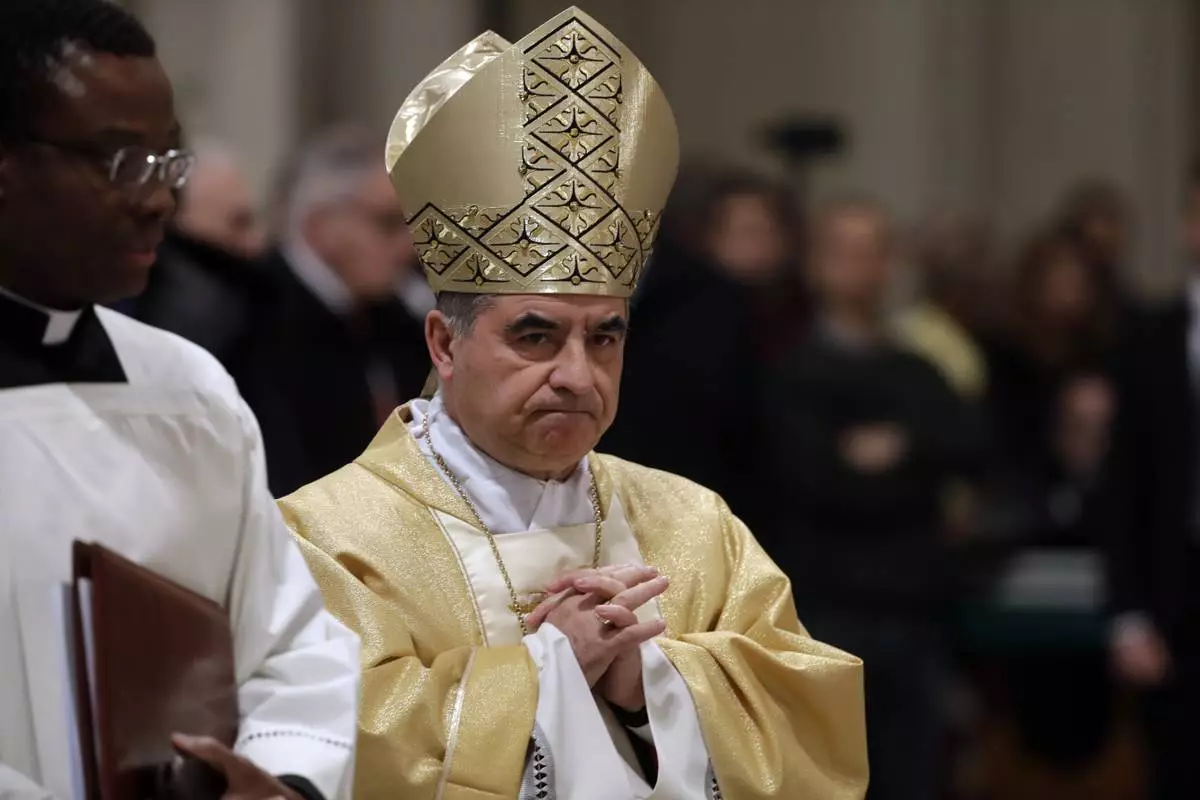
FILE - Mons. Angelo Becciu presides over an eucharistic liturgy, at the St. John in Latheran Basilica, in Rome, Feb. 9, 2017. (AP Photo/Gregorio Borgia, File )
HOUSTON (AP) — Former Uvalde, Texas, schools police Officer Adrian Gonzales was among the first officers to arrive at Robb Elementary after a gunman opened fire on students and teachers.
Prosecutors allege that instead of rushing in to confront the shooter, Gonzales failed to take action to protect students. Many families of the 19 fourth-grade students and two teachers who were killed believe that if Gonzales and the nearly 400 officers who responded had confronted the gunman sooner instead of waiting more than an hour, lives might have been saved.
More than 3½ years since the killings, the first criminal trial over the delayed law enforcement response to one of the deadliest school shootings in U.S. history is set to begin.
It’s a rare case in which a police officer could be convicted for allegedly failing to act to stop a crime and protect lives.
Here’s a look at the charges and the legal issues surrounding the trial.
Gonzales was charged with 29 counts of child endangerment for those killed and injured in the May 2022 shooting. The indictment alleges he placed children in “imminent danger” of injury or death by failing to engage, distract or delay the shooter and by not following his active shooter training. The indictment says he did not advance toward the gunfire despite hearing shots and being told where the shooter was located.
Each child endangerment count carries a potential sentence of up to two years in prison.
State and federal reviews of the shooting cited cascading problems in law enforcement training, communication, leadership and technology and questioned why officers from multiple agencies waited so long before confronting and killing the gunman, Salvador Ramos.
Gonzales’ attorney, Nico LaHood, said his client is innocent and public anger over the shooting is being misdirected.
“He was focused on getting children out of that building,” LaHood, said. “He knows where his heart was and what he tried to do for those children.”
Jury selection in Gonzales’ trial is scheduled to begin Jan. 5 in Corpus Christi, about 200 miles (320 kilometers) southeast of Uvalde. The trial was moved after defense attorneys argued Gonzales could not receive a fair trial in Uvalde.
Gonzales, 52, and former Uvalde schools police chief Pete Arredondo are the only officers charged. Arredondo was charged with multiple counts of child endangerment and abandonment. His trial has not been scheduled, and he is also seeking a change of venue.
Prosecutors have not explained why only Gonzales and Arredondo were charged. Uvalde County District Attorney Christina Mitchell did not respond to a request for comment.
It’s “extremely unusual” for an officer to stand trial for not taking an action, said Sandra Guerra Thompson, a University of Houston Law Center professor.
“At the end of the day, you’re talking about convicting someone for failing to act and that’s always a challenge,” Thompson said, “because you have to show that they failed to take reasonable steps.”
Phil Stinson, a criminal justice professor at Bowling Green State University who maintains a nationwide database of roughly 25,000 cases of police officers arrested since 2005, said a preliminary search found only two similar prosecutions.
One involved a Florida sheriff’s deputy, Scot Peterson, who was charged after the 2018 Parkland school massacre for allegedly failing to confront the shooter — the first such prosecution in the U.S. for an on-campus shooting. He was acquitted by a jury in 2023.
The other was the 2022 conviction of former Baltimore police officer Christopher Nguyen for failing to protect an assault victim. The Maryland Supreme Court overturned that conviction in July, ruling prosecutors had not shown Nguyen had a legal duty to protect the victim.
The justices in Maryland cited a prior U.S. Supreme Court decision on the public duty doctrine, which holds that government officials like police generally owe a duty to the public at large rather than to specific individuals unless a special relationship exists.
Michael Wynne, a Houston criminal defense attorney and former prosecutor not involved in the case, said securing a conviction will be difficult.
“This is clearly gross negligence. I think it’s going to be difficult to prove some type of criminal malintent,” Wynne said.
But Thompson, the law professor, said prosecutors may nonetheless be well positioned.
“You’re talking about little children who are being slaughtered and a very long delay by a lot of officers,” she said. “I just feel like this is a different situation because of the tremendous harm that was done to so many children.”
Associated Press writer Jim Vertuno in Austin, Texas, contributed.
Follow Juan A. Lozano: https://x.com/juanlozano70
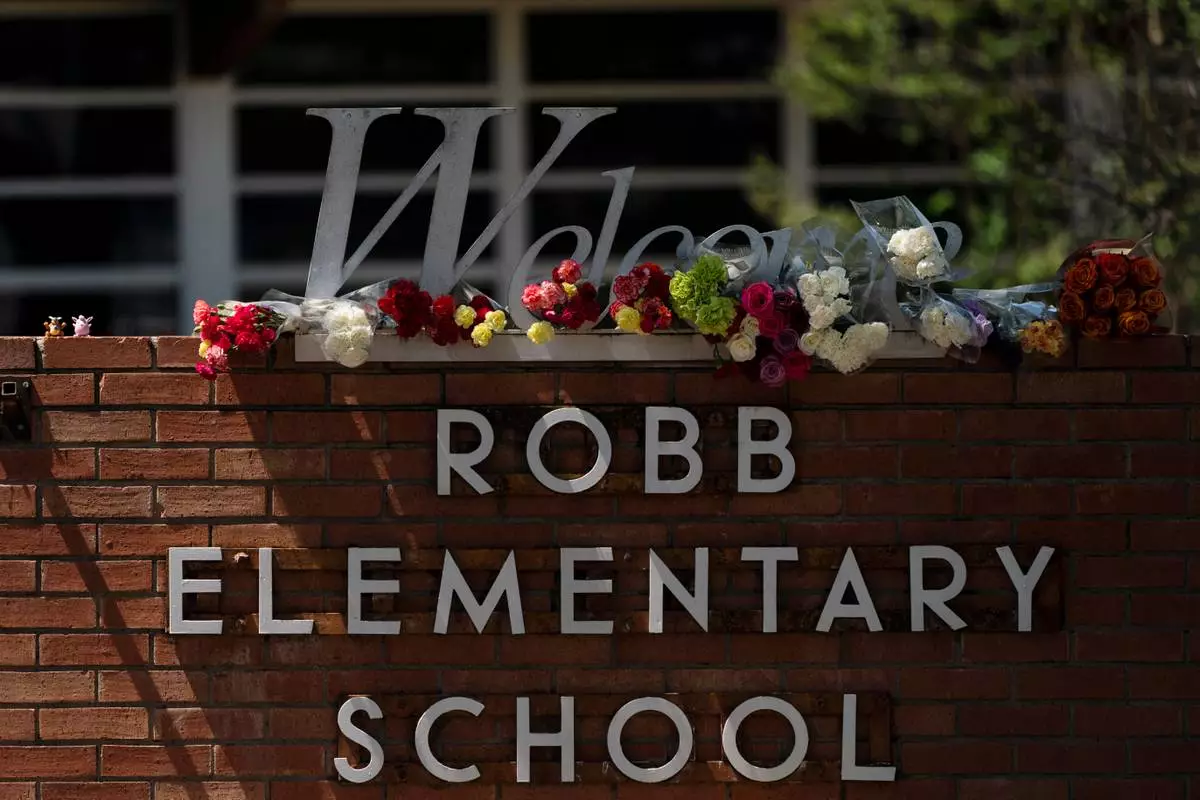
FILE - Flowers are placed around a welcome sign outside Robb Elementary School in Uvalde, Texas, May 25, 2022, to honor the victims killed in a shooting at the school. (AP Photo/Jae C. Hong, File)
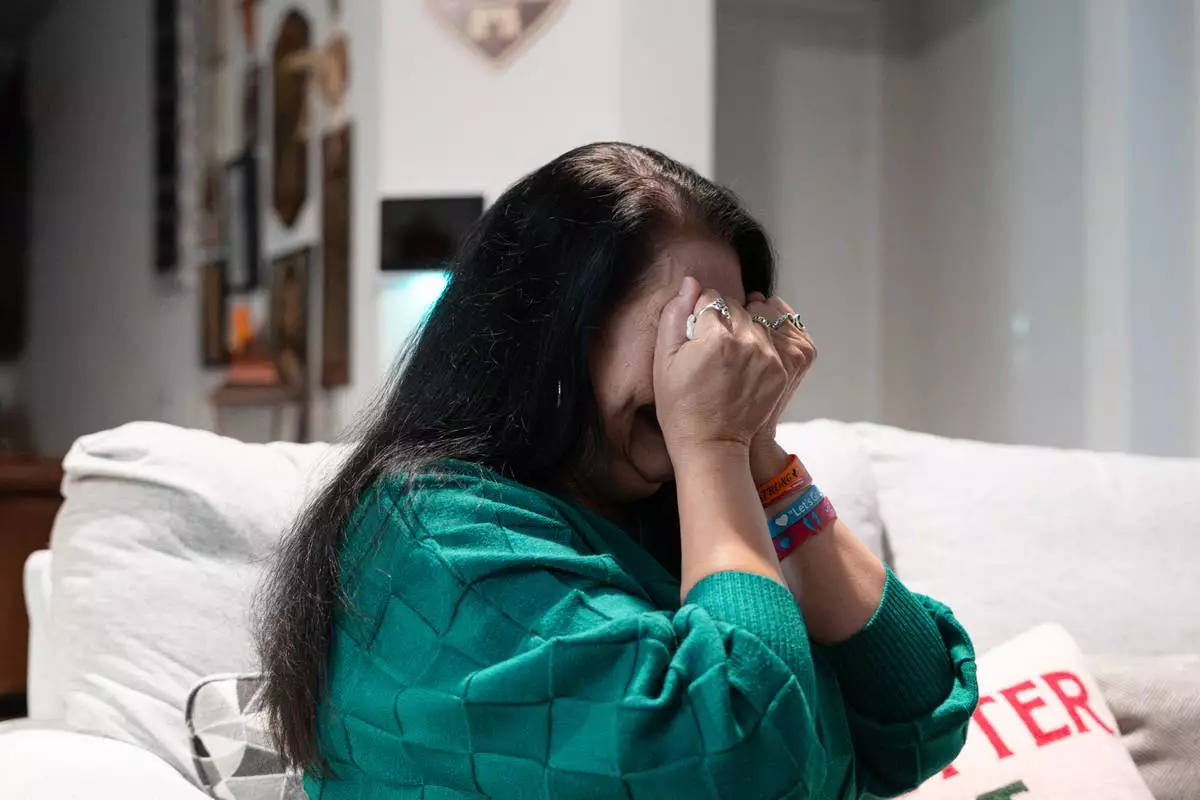
Velma Lisa Duran, sister of Robb Elementary teacher Irma Garcia, cries as she reflects on the 2022 Uvalde, Texas, school shooting during an interview on Dec. 19, 2025, in San Antonio. (AP Photo/Kin Man Hui)
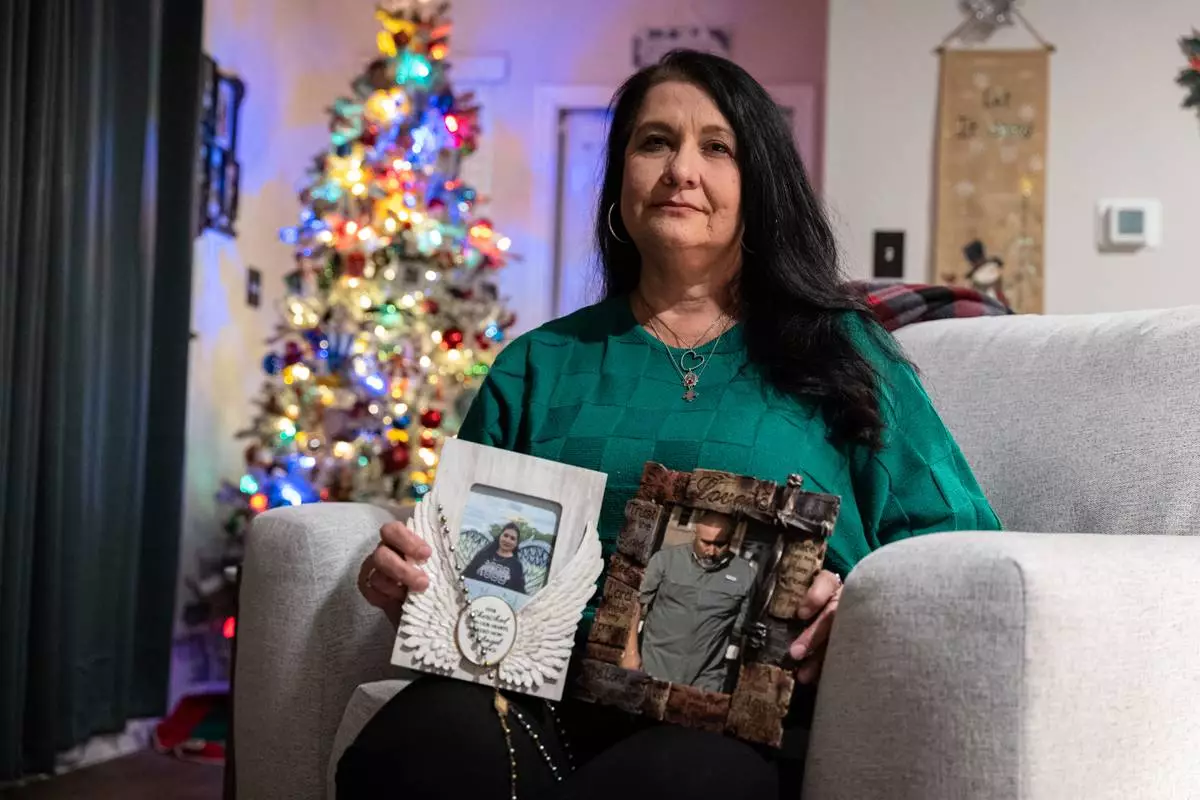
Velma Lisa Duran, sister of Robb Elementary teacher Irma Garcia, poses with photos of her sister and brother-in-law, Joe Garcia, as she reflects on the 2022 Uvalde, Texas, school shooting on Dec. 19, 2025, in San Antonio. (AP Photo/Kin Man Hui)
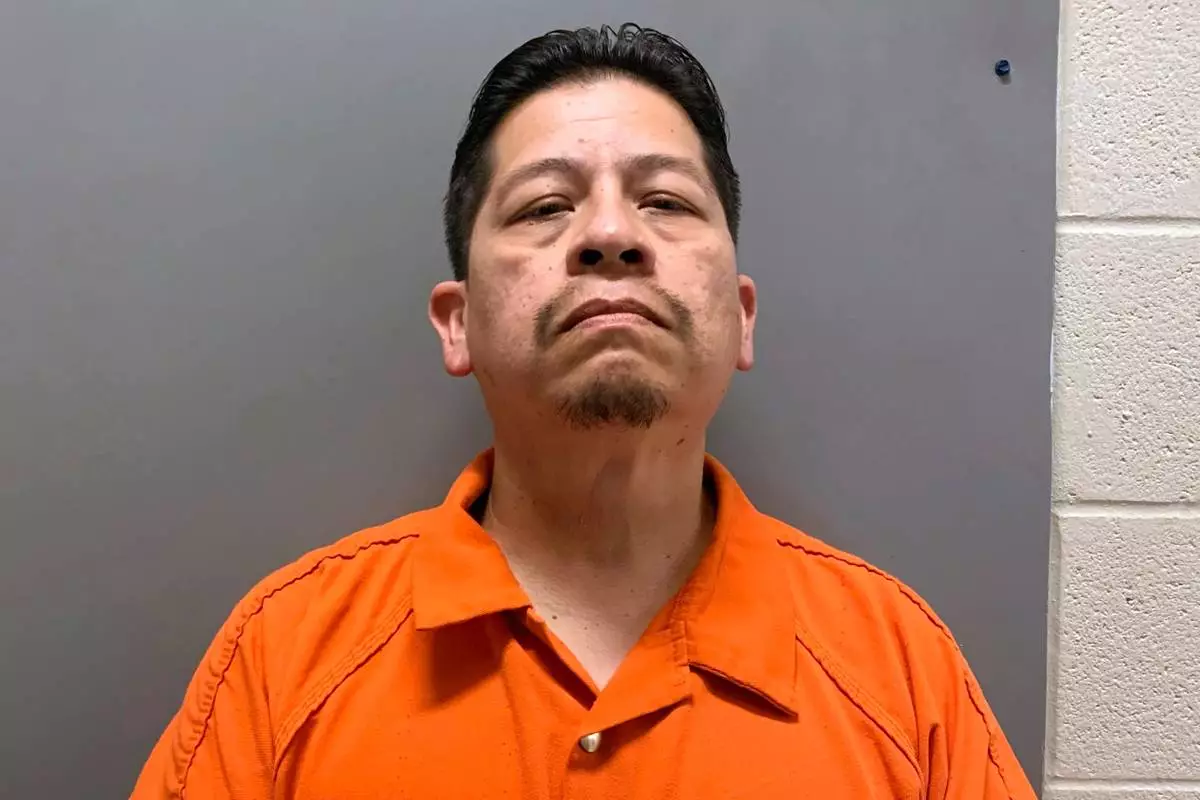
FILE - This booking image provided by the Uvalde County, Texas, Sheriff's Office shows Adrian Gonzales, a former police officer for schools in Uvalde, Texas. (Uvalde County Sheriff's Office via AP, File)
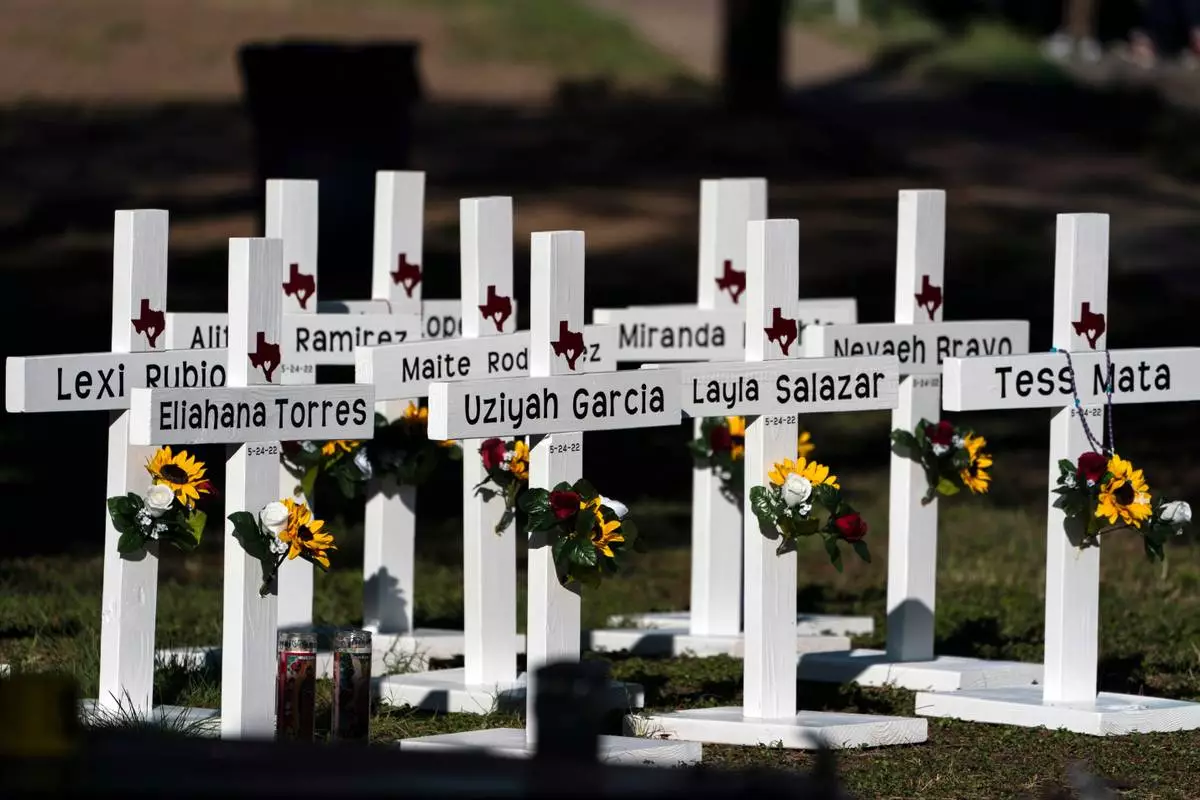
FILE - Crosses with the names of shooting victims are placed outside Robb Elementary School in Uvalde, Texas, May 26, 2022. (AP Photo/Jae C. Hong, File)



